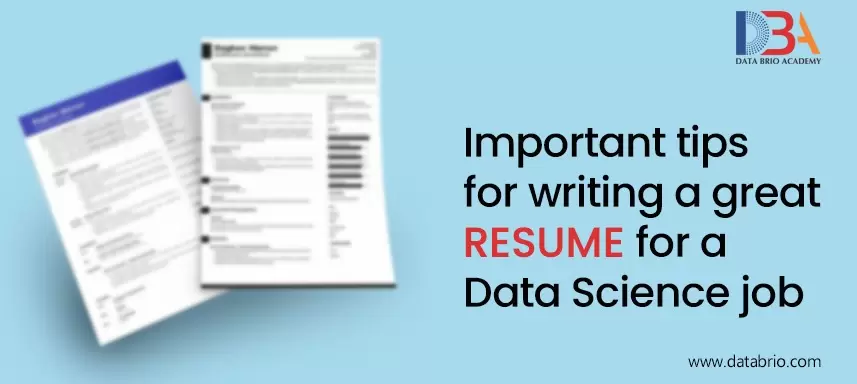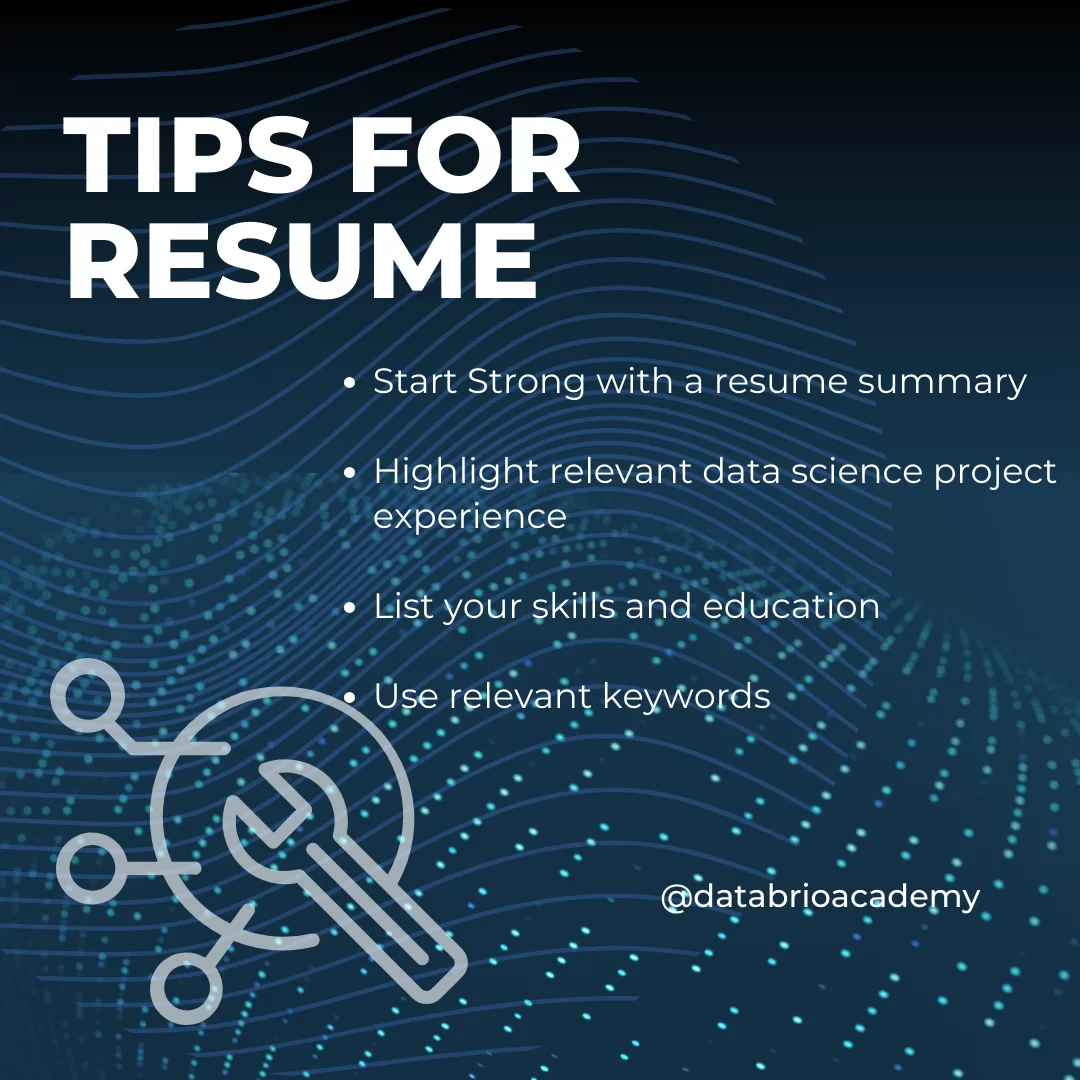Data science is a rapidly growing field, and the demand for qualified data scientists and analysts is high. If you have completed your training program and looking for a job in the data science field, your resume is one of the most important tools you have. A well-written resume can help you stand out from the competition and land the job you want.
In this blog post, we will discuss the key elements of a great data science resume for getting into the data science and analytics field and data science career opportunities. We will also provide some tips on how to tailor your resume to the specific job you are applying for.
The Key Elements of a Great Data Science Resume
A great data science resume should include the following elements:
- A strong resume summary or objective statement
- Relevant work or project experience
- Relevant education and coursework
- Technical skills
- Soft skills
- Awards and honors
a) Start with a strong resume summary or objective. This is your chance to make a good first impression and highlight your skills and experience. Be sure to tailor your summary or objective to the specific job you are applying for.
b) Highlight your relevant work experience. If you have any previous experience in data science or related to data handling, be sure to highlight it in your resume. This could include internships, research projects, or even personal projects.
c) List your skills and education. Be sure to list all of the relevant skills and technologies you are proficient in. You should also list your educational background, including any relevant coursework or certifications.
d) Quantify your accomplishments. This will help employers understand the impact of your work or project. For example, you could say that you “increased sales by 15% by developing a new data-driven marketing campaign.”
e) Use action verbs. When describing your skills and experience, use action verbs to make your resume more dynamic. For example, instead of saying “I was responsible for data analysis,” you could say “Analyzed data to identify trends and develop insights” which conveys that you analyzed the data.
f) Use keywords. When applying for jobs online, your resume will likely be scanned by applicant tracking systems (ATS) for keywords that match the job description. Be sure to include relevant keywords throughout your resume to improve your chances of getting your resume noticed.
g) Proofread your resume carefully. Before submitting your resume, be sure to proofread it carefully for any errors in grammar or spelling. A well-written resume will make a good impression on potential employers.
How to Tailor Your Resume to the Specific Job You Are Applying For
When you are applying for a data science job, it is important to tailor your resume to the specific job you are applying for. This means highlighting the skills and experience that are most relevant to the position.
For example, if you are applying for a job in data science in the healthcare industry, you would want to highlight your skills in data analysis and machine learning. You would also want to mention any experience you have working with healthcare data.
Here are some additional tips for data science aspirants who are writing their resumes:
- If you don’t have any work experience in data science, don’t worry. You can still highlight your skills and experience in other areas, such as mathematics, statistics, or programming. Include your analytics internships that you may have done. Mention about the data science and data analytics projects you have done and the learnings you have gained, even if those are your personal projects.
- A well-written summary is important. For example, if you are applying for an entry-level data science position, you could say something like: Data science learner with a passion for using data to solve real-world problems. Proven ability to visualize data using PowerBI and Python.
- Highlight your relevant coursework and projects. If you have taken any data science courses or completed any data science projects or data science certifications, be sure to highlight them in your resume. This could include courses and certifications on machine learning, data mining, or statistical analysis. It could also include projects that you have worked on, such as visualization and analytics, building a dashboard or developing a machine learning model.
- Get feedback from others. Once you have written your resume, ask friends, family, or mentors to review it and give you feedback. This can help you identify any areas that need improvement.
Avoid these mistakes in your resume
- Spelling and grammar errors: Typos and grammatical errors will make you look unprofessional and could cost you the job. Be sure to proofread your resume carefully before submitting it.
- Don’t use a template. Templates can be an excellent starting point, but you should customize your resume to make it your own so that you can include all the important points.
- Don’t use personal pronouns, such as “I” or “me.” Your resume should be objective and focused on your skills and experience.
- Don’t make your resume too long. A two-page resume is the standard length while a one-page well-made resume is preferred for people with 0 to 5 years of experience.
- Exaggerated or false claims: Do not exaggerate or make false claims about your skills or experience. This could come back to haunt you if you are ever caught in a lie.
- Too much information: A resume should be concise and to the point. Do not include too much information, as this will make it difficult for employers to read and understand.
Writing a great data science resume can be a challenging task, but it is essential if you want to land the job you want. By following the tips in this blog post, you can write a data science resume and data analytics resume that will help you stand out from the competition and land the data science and analytics job of your dreams.


